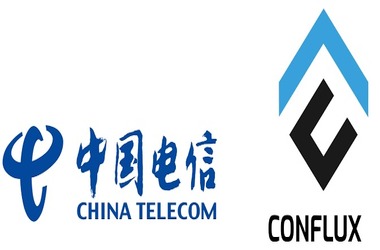
BSIM will significantly decrease the entry hurdle to Web3 for China Telecom’s more than 390 million mobile phone customers while enhancing the speed and security of activities. The objective is to increase the security of mobile phones by bolstering the digital assets of telecom consumers.
The BSIM card includes Tree-graph, simultaneous proof of stake, and proof of work technologies from Conflux, offering the best system efficiency of any blockchain. It employs the hardware safety benefits of SIM cards to safeguard customers’ private keys, hence providing a safe and easy Web3 entry option.
The BSIM Card is visually identical to a standard SIM card, but its storage capacity is 10 to 20 times more and its processing capability is multiplied by tens. Users who employ a BSIM card will indeed be able to safely retain digital assets, transmit digital assets with ease, and show digital assets in a range of apps.
The BSIM card will keep and manage the user’s public and personal keys on the card, and digital certificates will be executed in such a manner that the private key never leaves the card. Additionally, the BSIM card supports encrypted recording, key recovery, and other functions. To ensure the safety of individual digital assets, the signature and transfer of assets will be handled by the Bluetooth module. This minimizes the likelihood that the user’s smartphone may be compromised by malware as well as other harmful applications.
Basic user IDs, including smartphone numbers, may be linked to Decentralized Identifiers (DID). This will provide improved integration and communication between virtual and actual information. BSIM cards may also be integrated with imaginative accounts utilizing smart contracts, allowing blockchain solutions to utilize cryptographic and non-cryptographic user data securely and effectively. Connecting DID with mobile phone numbers may help solve certain legal problems caused by the secrecy of blockchain technology.
The original deal between Conflux Network and China Telecom was inked in 2022, and this model is the end of a year-long effort to develop physical items for entry to the global metaverse.
BSIM card’s research and development stage has concluded, and it has effectively linked to Conflux’s central hub in the trial environment. This model is capable of storing and transmitting digital materials. Conflux and China Telecom will therefore concentrate on enhancing the sustainable uses of the BSIM card, with an emphasis on gaming, remittances, and other industries.
Conflux Network’s Chief Technology Officer, Dr. Ming Wu, stated, “The BSIM card dramatically enhances the customer experience and reduces the entry obstacles for Web3 and the Metaverse world.” It is essential for Conflux’s environment to go to the next stage. Collaboration with such a powerful collaborator as China Telecom, initiated from Hong Kong, will enable us to penetrate the Chinese and worldwide markets in the near term.”
Dr. Liang Wei, Deputy Director of the Big Data and Artificial Intelligence Research Institute at the China Academy of Telecommunication Research, stated, “Blockchain-based digital identity is at the heart of future Web3.0, whereas blockchain-based digital assets are a major impetus for the Metaverse.” The BSIM card is touted as the entry layer of the Metaverse, which offers distinct functionalities like telecom hardware safety, a smart digital wallet, and DID value-added features. “Collaboration with Conflux will speed up the procedures of linking Web2.0 and Web3.0 clients in this innovative arena.”